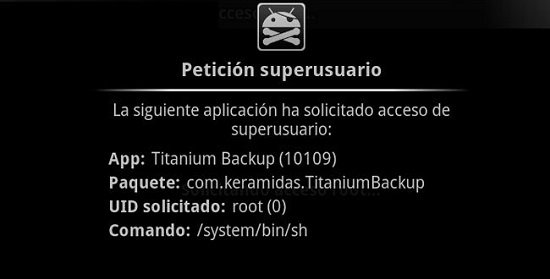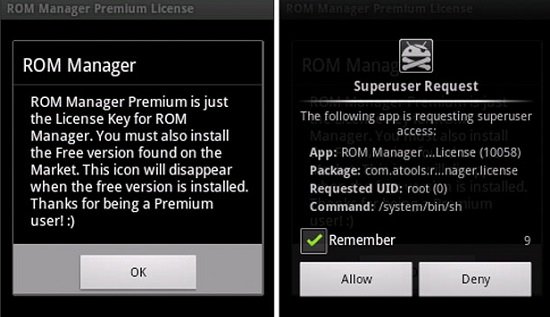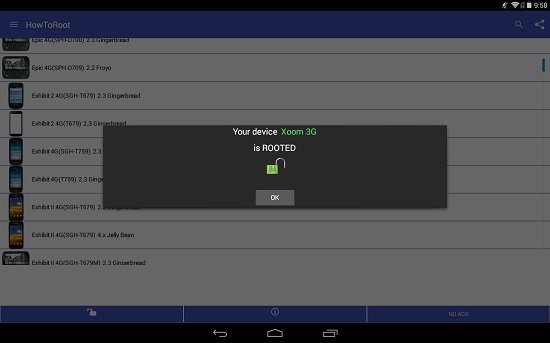For various reasons, but in general to achieve greater control of the software of our Android device, many users sometimes resort to root their computer. Of course, deciding to do so must involve a series of fundamental factors, so that the root that we do on the smartphone or tablet does not end up turning the device into a useless object.
As we already suppose , in order to carry out the process of rooting our Android device it is extremely important that we clearly know what we are doing, so in principle we must have some knowledge in terms of computing and programming.
It is not convenient for the common user to take as an example the small tutorials that are usually distributed on the Internet to carry out this procedure, without having previous knowledge, since things cannot always turn out as we wish, and also the fact that that a procedure of this nature has given results to a user, does not necessarily mean that it works in our case.
Well, before we get into questions that are related to the possible benefits and disadvantages of rooting an Android smartphone or tablet, we must first be clear about what the procedure of rooting the device means.

Basically, rooting an Android device means being able to access administrator privileges in the operating system, something similar to what happens in Linux, since ultimately we bear in mind that Android has been developed based on this platform.
It should be noted that whenever we buy a smartphone or tablet with Android operating system, for the system we are simply guests , that is, we cannot be administrators of the equipment software, that is, we can use the device, but we do not have the necessary permissions to make changes in the system files.
Through the procedure of rooting the computer, we access the administrator privileges, so we can now begin to view the root folder of Android and carry out changes in the system files of the device, that is, for example, enter Other things we could modify the distribution of the storage capacity of the equipment, uninstall applications that have come from the factory, install some apps that otherwise it is not possible to do it, and others.

What has been mentioned so far shows us a scenario in which it would seem that rooting an Android smartphone or tablet is a very good idea. However, below we will tell you some of the benefits, but also the disadvantages of performing the procedure.
Benefits of rooting Android device
Among the main advantages that rooting an Android device offers us, we can mention that with administrator privileges we can run special applications that require root access to be installed and to work.
At this point it is important to mention that in general the applications that request root, that is, the apps commonly known as root applications, tend to offer more features than standard applications, since root apps work directly with files. Android system.

Another benefit offered by rooting an Android device is that from this procedure it is possible to make a custom ROM work, which in general tend to offer higher performance , and at the same time lower energy consumption. Also, this type of ROM tends to be updated more frequently than conventional ROMs.
Among the advantages of rooting our Android smartphone or tablet, we must also mention that the procedure allows us to access the modification of the storage space within the equipment.
For example, in the case in which we have a device with little internal memory, by rooting the computer we can transfer any application from the internal memory to the SD card. Although there are some apps that include this option by default, the truth is that there are many that do not allow it, and the only way to achieve it is by rooting the device.

Disadvantages of rooting an Android device
As we mentioned earlier, in order to root an Android device and not die trying, or what is worse, not end up turning the device into a useless object, it is essential that we have certain knowledge regarding this issue.
It is not at all recommended that the procedure be carried out by an inexperienced user, because we also bear in mind that if we are doing the root taking into account the guidelines that a tutorial indicates, we cannot go through any step, since it is about of an extremely important task, which can lead us to break the device software forever.

On the other hand, if our Android Smartphone or Tablet are new, it is not advisable to root it, since before the possibility of any problem arising and we must take it to technical service, the fact that our equipment has been rooted invalidates any warranty on the equipment.
Immediately after having rooted the device, its warranty is void, so it is not advisable to perform this procedure on a computer that still has a manufacturer’s warranty, and we bear in mind that in most computers, doing root does not have turning back.
In conclusion
After what has been stated so far, is it then convenient or not to root the Android smartphone or tablet? The answer to this concern must be found by each one of us, since each one knows their limitations and also knows to what extent they are willing to take risks.

In general terms, only in the case of knowing what we are doing and due to the fact that we need administrator privileges to execute special applications and custom ROMs, it is worth doing, always depending on the use we give to our device.
It should be noted that it is extremely important to perform the procedure with total caution, and this premise is also even for the most expert users, because we are always exposing ourselves to bricking the equipment, that is, the device is damaged without the possibility of being able to be repaired.